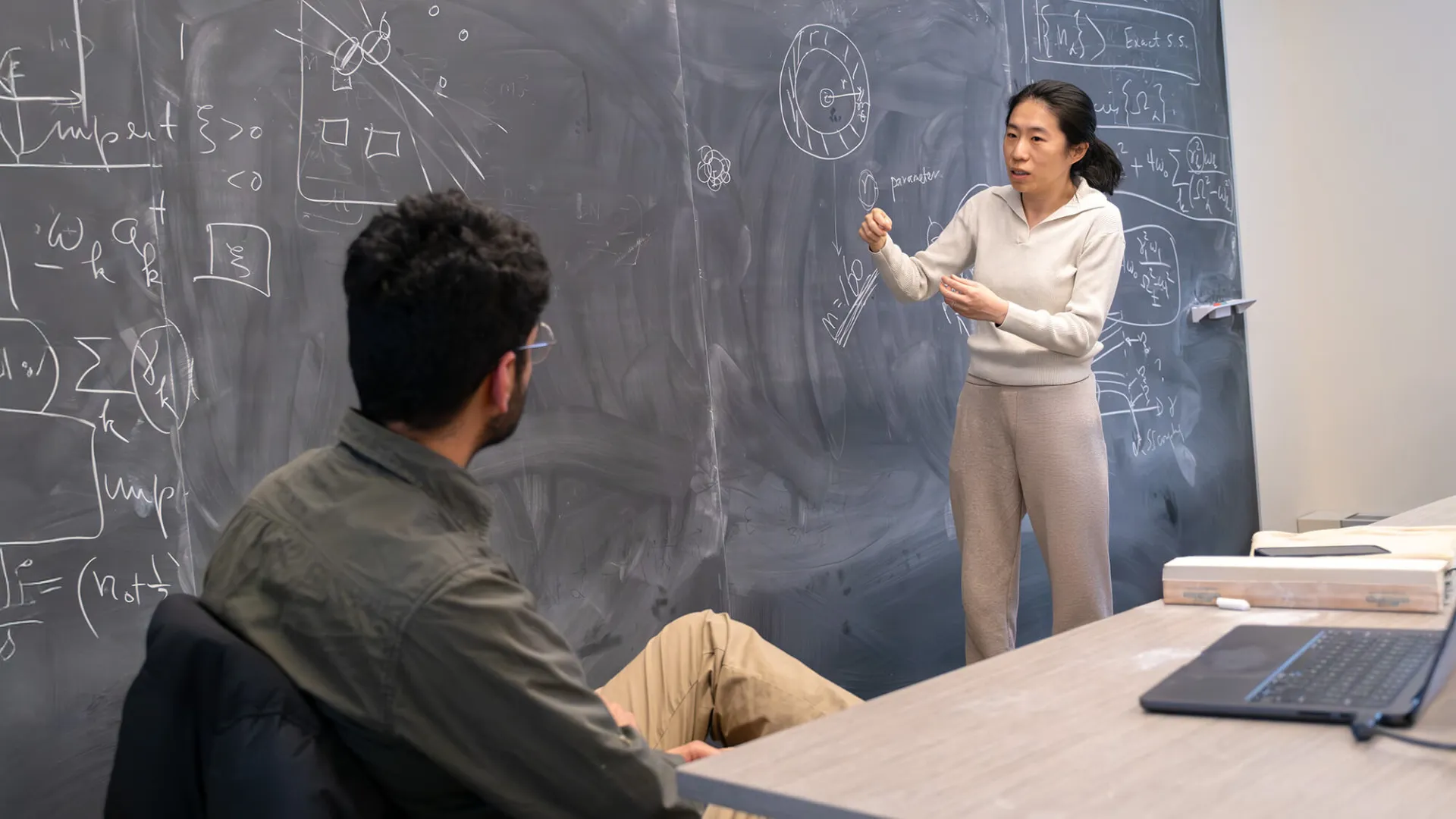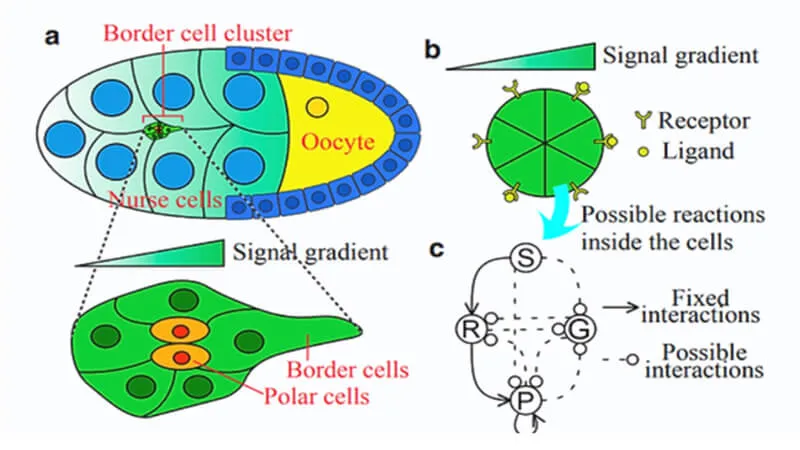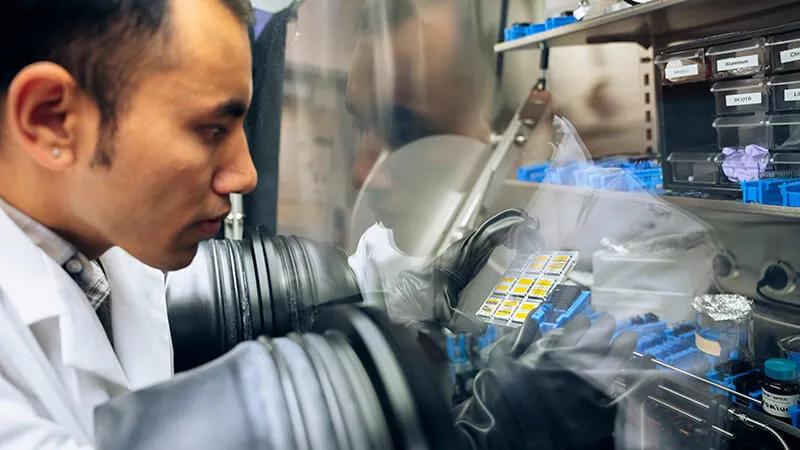Working at the leading edge of cellular research is a group of scientists not generally associated with the study of biological systems, namely physicists. However, the discipline of biophysics is a dynamic and essential bridging science that seeks to understand and explain biological function in terms of physical mechanisms.
University of Vermont Assistant Professor of Physics Haicen Yue is one of these researchers whose work in the field of biophysics was recognized this month with a CAREER award from the National Science Foundation (NSF).
Among the most prestigious awards presented to faculty members recognized as exemplary teacher-scholars in their field, CAREER Award recipients receive a federal grant to help fund combined research and education activities over a five-year period.
Existing at the nexus of physics and biology, biophysics is an interdisciplinary science that applies the methodology and tools of physics to explore biological phenomena and develop new tools to advance our understanding of how the foundational components of life function.
The area of Yue’s research funded by the CAREER award will focus on cellular adaptability as a key differentiator between living and non-living materials. Incorporating newly developed computational models, Yue’s research seeks to uncover the unique properties and behaviors of living tissues as adaptive materials benefiting from their unique cellular properties.
“My project aims to improve our understanding of materials science and biological tissues by investigating living tissues as a novel type of adaptive material,” said Yue. “Unlike traditional materials composed of polymers or other non-living molecules, living tissues consist of cells with remarkable abilities to sense and respond to their environment.”

Viewing tissues as “living soft materials,” Yue’s research looks to provide a strong theoretical understanding of their properties, offering future experimentalists the framework to develop new innovative biomaterials with the potential to revolutionize medical applications such as advanced tissue repair and cutting-edge cancer treatments.
Another unique facet of cell behavior is their ability to aggregate to form larger, collaborative groupings. Similar to how water molecules can arrange themselves as a liquid, vapor, or solid under different conditions, known as phase transitions, the cells collectively respond to unique situations that influence their aggregation. Yue’s research hopes to provide better insight into this collective behavior with a potential outcome of helping biologists understand the ‘phase transitions’ that underlie human body functions and disease processes.
Biophysics is one of three core focus areas for UVM’s Department of Physics, along with Experimental Materials Physics and Theoretical Condensed Matter Physics. Often blurring the boundaries between traditional scientific disciplines, the department’s research areas embrace strong interdisciplinary collaboration with departments and researchers across campus, including Chemistry, Mechanical Engineering, Electrical and Computer Engineering, Molecular Physiology and Biophysics, and Cell and Molecular Biology.
“Strong education is built upon the foundation of strong research and there is nothing better than seeing our faculty thrive in both areas," said Physics department chair Matt Dawber. "Prof Yue’s success in securing a CAREER award is foundational for not only her own research, but also our department’s future growth in the fascinating field of biophysics. This is an exciting time for Physics at UVM. In the last two years, we have doubled the number of tenure-track faculty in our department, and the next step is to do the same with our undergraduate and graduate student enrollment.”
In addition to pioneering new research, Yue’s CAREER Award project has an ambitious education and outreach component to heighten awareness of the field of biophysics and recruit a new generation of researchers working at the intersection of material science and biology.
By integrating research and education in her CAREER award project, Yue looks forward to introducing students and the public to the emerging field of living materials science and a broader appreciation for interdisciplinary thinking. Yue’s own journey into the field of biophysics began during her undergraduate studies when she discovered the specialized discipline during a physics course.
“I was interested in both physics and biology, and I hesitated which major to declare,” Yue said. “In a class on statistical mechanics, I was introduced to the field of biophysics, and I learned that this is an exciting area of research where I can combine my interests in physics and biology.”
Recognizing the complexity of theoretical research in biophysics, Yue’s educational outreach plans include developing a visual introduction to the research using video simulations of computational models. In time, a more intuitive interface for computer modeling could be developed, allowing students to adjust parameters more easily to visualize different results.
At the end of the five-year project, Yue hopes to elevate the profile of the department’s biophysics program and expand the existing curriculum to attract both undergraduate and graduate students to the program while continuing to pioneer the interdisciplinary study of living tissues as a distinct class of materials and to inspire the future design of novel bio-inspired adaptive materials.


